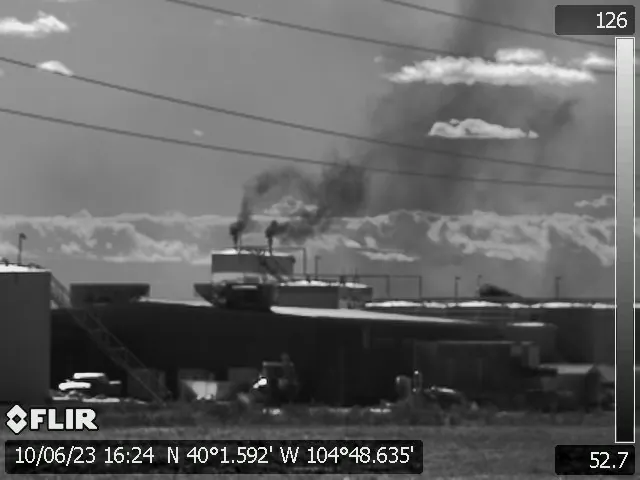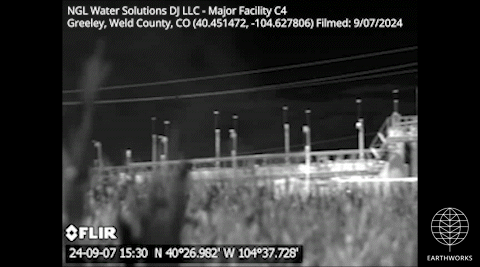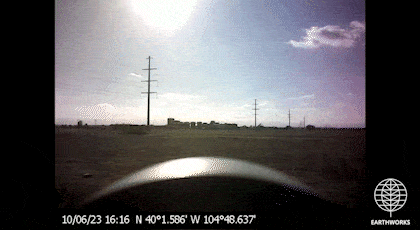|
Getting your Trinity Audio player ready...
|

A Simple Proposition?
Early next year, Colorado’s Energy and Carbon Management Commission (ECMC) will decide on rules to require Colorado’s oil and gas industry to recycle and reuse more of its own wastewater, which is known as produced water, rather than use freshwater for activities such as fracking.
This rulemaking was set in motion by the adoption of House Bill 23-1242 last year. The goal of this bill is to prevent Colorado’s precious freshwater resources from being polluted and destroyed in the industrial processes associated with oil and gas extraction.
This is a worthwhile goal. In a perpetually drought-stricken state, we should prioritize using our freshwater resources for communities. Additionally, the industry has a lot of produced water to spare.
Produced water is the wastewater that is extracted from underground formations along with crude oil and/or methane gas and it is the single largest byproduct associated with this extraction process. Oil and gas wastewater contains varying amounts of heavy metals, salts, hydrocarbons, and other pollutants that can threaten human and environmental health. Right now, much of the produced water in Colorado is treated as waste and is disposed of by, for instance, injecting it back into the earth.
So, it makes a lot of sense to require this waste product to be recycled and reused…if only it were that simple.
Air Quality Impacts of Produced Water
A major challenge with recycling produced water is that operators must store it in large quantities in order for it to be treated. Keeping produced water in storage tanks or basins often results in harmful emissions.
Produced water, like the crude oil it is extracted with, is a source of airborne contaminants known as volatile organic compounds (VOCs). VOCs are both directly harmful to human health and contribute to the formation of ozone, which makes the air unsafe to breathe for millions of Coloradans who live on the Front Range.
Unfortunately, numerous facilities already store and dispose of large amounts of produced water near communities on the Front Range. Our optical gas imaging (OGI) camera, designed to visualize pollutants such as VOCs, demonstrates that these facilities are a constant source of VOC emissions, as operators are often not legally required to do anything to prevent these emissions.

Pollutants including VOCs being released into the atmosphere from a produced water storage tank on a facility where produced water is stored and injected back into the earth. The operator is not required to prevent these emissions.
Over the course of 45 OGI surveys at 18 different facilities that store and dispose of produced water, we observed emissions during 26 of those surveys at 15 of those facilities. This means that, on average, we have observed emissions on every other survey of this type of facility and at almost every such facility we have ever surveyed.
Almost all of this pollution was due to uncontrolled releases or venting from produced water storage tanks and basins. Under current air quality rules, this type of polluting activity is often allowed at these types of facilities. Only 5 of those 26 pollution events we observed were the result of something an operator had to take action to fix.
Do No Harm
House Bill 23-1242 anticipated this problem. The bill requires ECMC to pass rules prohibiting the construction of new produced water storage and treatment facilities in any of Colorado’s disproportionately impacted communities (DICs). It also requires the rules to not contribute to an increase in emissions.
These are important guardrails. DICs, which have a higher proportion of vulnerable populations exposed to environmental harms than other communities, should not suffer additional harmful impacts and Colorado’s Front Range should not be subjected to additional ozone forming pollution as a result of these rules.
The oil and gas industry should not be allowed to do additional damage to communities and air quality as a result of being forced to be less wasteful of water resources.
This is why it is vital that the ECMC passes rules that honor these legislative requirements.

Pollution from a produced water storage and disposal facility located in the Denver metro area located in a DIC and next to a mobile home community.
You can lend your voice to this rulemaking effort to ensure that the ECMC passes rules that require the industry to use less freshwater while also protecting Colorado communities and our air quality.
There will be an opportunity for the public to share their concerns with the ECMC prior to the rulemaking. Using this link, you can either provide a written comment or sign up to give an oral comment at a virtual hearing on February 27, 2025.
We need the State of Colorado to protect our water, our air, AND our communities from the oil and gas industry’s harmful practices.

